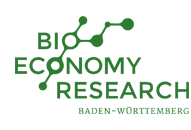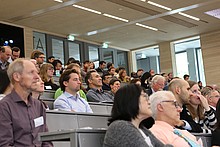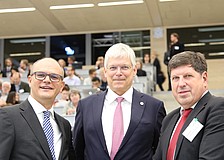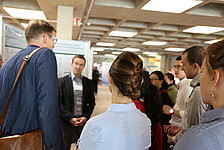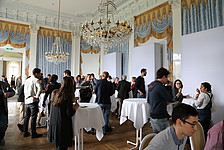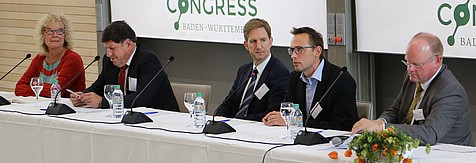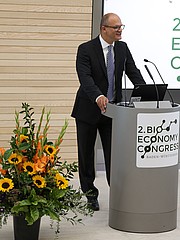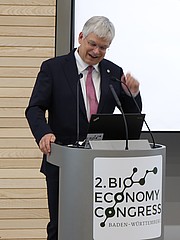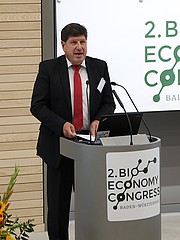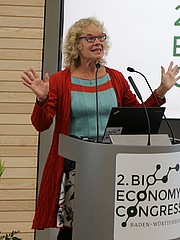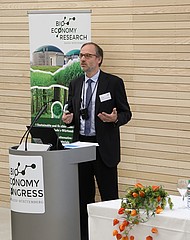2nd International Bioeconomy Congress
12./13. September 2017
The 2nd International Bioeconomy Congress in Stuttgart was an interdisciplinary expert and stakeholder meeting dedicated to the systemic approaches of Bioeconomy, organized by the Ministry of Science, Research and the Arts Baden-Württemberg, the University of Hohenheim as well as BIOPRO Baden-Württemberg GmbH. The conference aimed at discussing innovative products, processes and regional concepts that use biomass instead of fossil resources and to share first results from the Bioeconomy Research Program Baden-Württemberg which was implemented in 2014.
150 scientific contributions were chosen to be presented either as an oral or poster presentation.
Scientific congress with broad range of subjects
During both days, the approximately 350 participants of the congress dealt with eight topics:
- Sustainable biomass supply
- Food and feed – New sources, products, technology and applications
- Value chains for new materials, chemicals and fuels
- Substrates, technologies and products in the biogas value chain
- Collaboration networks for Bioeconomy value chains
- Bioeconomy and the environment
- Concepts for measuring and modelling the sustainability of bio-based materials
- Societal issues of Bioeconomy
An interdisciplinary and systemic approach is necessary
The large number of international scientists from 18 countries opened the view on the global dimension of bioeconomy. Numerous guests came from Latin America and from Denmark and Finland, nations which are also working intensively on bioeconomy strategies and which are partly already connected to strategic scientific networks with local actors.
“Undoubtedly, the transition from a fossil-based to a bio-based economy is gaining importance worldwide”, explained the President of the University of Hohenheim Prof. Dr. Stephan Dabbert. “It does so for a very simple reason: Bioeconomy holds the key to a modern and much more sustainable economy.” However, Prof. Dabbert further points out, it will be not enough to just create a new raw material base. "Rather, it is necessary to focus on the sustainable performance of the entire value chain from the production, conditioning, and conversion of bio-based raw materials to the acceptance of these materials by consumers and society as a whole.”
To exploit the full potential of bioeconomy, namely developing sustainable products and processes, an interdisciplinary and systemic approach is necessary, explained Prof. Dr. Thomas Hirth, Chair of the Steering Committee of the Research Program Bioeconomy Baden-Württemberg and Vice President for Innovation and International Affairs of Karlsruhe Institute of Technology (KIT). “Collaboration between academia, small and medium size companies, and industry will be important for the development of Bioeconomy products that are successful in the market,” said Prof. Dr. Hirth. He is very glad that with the support of the Ministry of Science, Research and the Arts, it was possible to build new networks and infrastructures that have been very successful.
The future potential of bioeconomy was discussed in two plenary sessions with panel discussion.
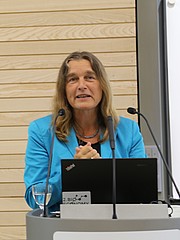
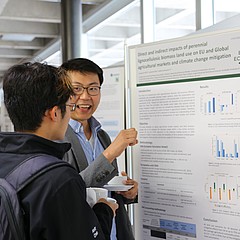
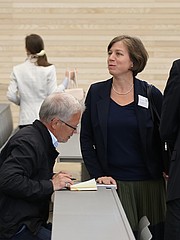
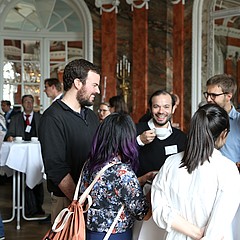
Photos: University of Hohenheim
The use of photos is only allowed with the permission of the University of Hohenheim. Please contact bioeconomy-bw@uni-hohenheim.de.
Contact: Dr. Annette Weidtmann, University of Hohenheim, Coordination Office Bioeconomy Research Program Baden-Württemberg, T +49 (0) 711 459 22827, E annette.weidtmann@uni-hohenheim.de
The 3. International Bioeconomy Congress Baden-Württemberg will take place on 21 and 22 September 2020. Further information: www.bioeconomy-congress.de
